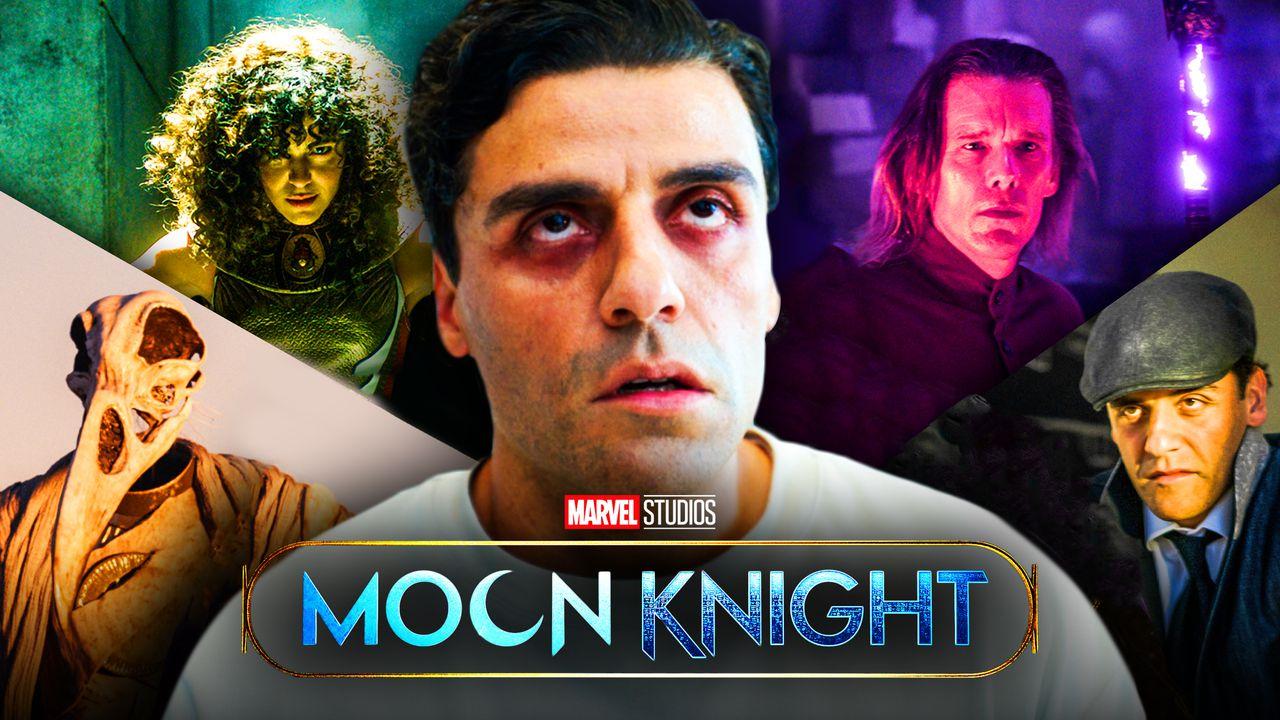
Oscar Isaac's Moon Knight delivered a story from Marvel Studios that explored an incredible look at its leading character's mental battles alongside the classic action for which the MCU is known. Behind a nuanced and emotional performance from leading actor Oscar Isaac, each scene in Moon Knight provided new levels of thrills and mystery as Marc Spector and his alternate personalities evolved.
While this series delivered a unique superhero story that existed largely separately from the greater MCU, the Moon Knight team had plenty of material they had to leave on the table in post-production. This included more imagery of the Egyptian skyline along with an unused clip putting Arthur Harrow into the spotlight, although another one has made headlines for its deep look into Marc Spector and Steven Grant's troubled past.
Director Mohamed Diab explained a deleted scene in Episode 6 that showed Marc and Steven coming to terms with their abusive mother, showing how both characters put their emotional past behind them in that head-on confrontation.
Recently, Isaac himself discussed a scene that he wished the team could have kept in that final episode that could have provided even more depth to Marc and Steven's character development as well.
Oscar Isaac on Deleted Moon Knight Moment

Speaking with Gold Derby, Moon Knight star Oscar Isaac shared his thoughts on a deleted scene that he regretted leaving out of the show's sixth episode.
He shared details of a scene that would have more closely tied his abusive mother to the Egyptian goddess Ammit, which would have also given more depth to the "Later's gators" phrase that Steven Grant uses. This would have shown Ammit expressing her desire to have pre-judged Marc and Steven before their entire story unfolded, adding another layer of heartbreak to the situation with their mother:
"And in some ways, we tried to push it more. There was a great scene at the end of [Episode] 6 that just didn’t quite fit in the rhythm of it and that was one scene that, for me, would have tied in mother and Ammit a little closer, because that’s also why I came up with this “Later’s gators” thing because then she says, 'After a while, crocodile.' And so for me, that’s like… she said, 'Crocodile.' She was the crocodile goddess that’s saying, 'I wish I could pre-judge you because you would never have… this never would have happened.' So for me, it was really important even if the audience doesn’t get it literally, that there’s some even subtextual emotional connection to everything that’s happening.”
Isaac also shared insight into the difficulties of playing two different characters in scenes like that, particularly two characters that have to see what the other one is going through in real-time:
“It was difficult to understand just how complicated it was going to be… even just preparing for it, you know, until you’re there and realizing that, not only is it you know two separate characters but sometimes I’d be playing two separate characters watching… themselves in the past interacting as well."
Specifically, Isaac looked back to his work in Episode 5 where Steven and Marc go through each other's childhoods and learn about "their very specific point of view" through each moment. Having to work through the details of each character's story was a challenge for Isaac, but it's one that he described as "such an incredible mountain to scale:"
"So in a way in the scene for instance, in Episode 5 where Steven watches Marc from the past break down in front of his parents’ house and so… Steven’s watching Marc, and then Steven watches Marc turn into Steven from the past… Marc from the present watches Steven from the present watching Marc from the past turn into Steven from the past. You know, and all that, we shot on the same day. So… all of them have to have their very specific point of view, their emotional truth to what’s happening in that moment and also holding the entire story in one’s mind to… have it make sense and be telling a story. So that kind of twisting of the brain and figuring out… you know, being very specific with each one and what’s happening with each one, that was it was just such an incredible mountain to scale.”"
Moon Knight Leaves Big Moment on the Table
The last two episodes of Moon Knight took the opportunity to dive into Marc Spector's mind more so than all four previous entries, exploring the trauma that he had to deal with as a child. Even with that much exploration of his mental state, providing much-needed insight into mental health issues within this story, Oscar Isaac seemed to want to see things go even further in that direction.
As has been the case in most of the MCU Disney+ finales, Moon Knight's last episode largely centered around a physical battle between Ammit, Khonshu, Taweret, and their three Avatars. While the episode brought some major milestone moments, such as May Calamawy's evolution into the MCU's first Arab superhero, Marc's trauma was almost pushed aside for the time being as the season came to a close.
Hopefully, should a second season of Moon Knight be put into development, Marc and Steven will have that opportunity for closure in terms of the trauma that they both faced.
Season 1 of Moon Knight is available to stream on Disney+.
Richard Nebens joined The Direct in March 2020, now serving as the site's Senior Writer and also working as an assistant editor and content creator. He started his journalism career as a hobby in 2019 and is passionate about sharing news and stories from the entertainment industry, especially comic book movies, comedy, and sci-fi. Richard looks to expand his knowledge about movies and TV every day, and he is eager to stay locked into the latest releases and breaking news at every opportunity.











